Story
Power a village, light up a Nation: Women lead a transformative solar lighting project in rural Kassala, Sudan.

Through its long experience working with local communities, Practical Action succeeded in activating the role of the rural women in energy access in ten remote villages in rural Kassala, Sudan.
Sudan suffers from very poor electrification rate as only 32% of the total population has access to electricity. Kassala state in the Eastern part of Sudan particularly suffers from low energy access. Additionally, it is inhabited by one of the most conservative communities in the region. In this area, women are largely excluded from education systems and livelihood opportunities. Practical Action is an international development organisation that puts ingenious ideas to work so people living in poverty can change their lives. Through its long experience working with local communities, Practical Action succeeded in penetrating this conservative communities in Kassala in order to activate the role of the rural women in energy access in ten poor and neglected remote villages.
This is achieved through a joint initiative with UNICEF for piloting an innovative model for solar market activation in rural areas of Sudan, funded by the Netherlands Enterprise agency. The model leverages the smart nexus between humanitarian and development sectors in Sudan (represented by UNICEF and Practical Action respectively). The two partners worked together to enhance integrated development opportunities for the targeted communities through improved access to education for out-of-school young girls and boys and increased access to clean energy for learning, lighting and communication.

Women receiving their solar home system units and learning how to operate them. Photo: Practical Action.
Practical Action formed and trained women development associations and then used these associations to distribute about 300 solar home systems to benefit 1,800 needy women, men, boys and girls.
In order to ensure a sustainable and scalable model, the project adopted a revolving fund mechanism. The solar home systems were provided on loan as in-kind seed grants to the communities. The women development associations were charged with the responsibility of collecting repayments from the first line beneficiaries through easy instalments over a period of up to ten months. The associations then took the lead to purchase another set of SHS for a new group of beneficiaries in their communities, managing the repayment system, and maintaining clear and accurate records.
Practical Action also trained targeted women beneficiaries in business management and supported them to run other small enterprises and/or group businesses. The project facilitated the formation of small savings and loans groups as a micro-finance mechanism.
Capacitating women in these managerial aspects has opened the door for tens of women to confidently initiate new enterprises that are now actively generating income to the household and improving local markets.
The five months pilot has resulted in a quick and impressive impact as it has created a revolutionary change in the targeted communities. Women reflect that there has been significant impact on their health and wellbeing as they have been able to save an additional 4-6 hours in their day. Other benefits from the project include learning opportunities for the entire family, ability to charge their mobile phones to stay connected, access to radio and awareness raising materials. New income generation skills and opportunities, together with income saving (no need to purchase dry batteries for lighting and paying to charge mobiles) has increased communities development and resilience to poverty and poor livelihood.
Market activation, which is the main strategic objective for this intervention, was worked out through improving rural supply and demand.
Establishing a successful revolving fund mechanism to increase communities’ affordability in order to purchase SHSs, along with innovative awareness raising campaigns (drama shows in the villages, community radio in local languages and TV shows) as well as intensive advocacy activities, all helped to generate great demand in the rural areas of Kassala state.
On the supply side, linkages were created between the private sector and the community based organisations to ensure continuous supply of spare parts and new systems. More than eight companies were invited for the first ever joint exhibition in Kassala town to advocate for new solar solutions. All stakeholders participated in a workshop to develop a participatory market system of the nascent solar market. The solar market’s primary and secondary actors (more than 50% of them women) collectively mapped the solar market in the state, reflected the current challenges and constraints, and discussed their visions for future expansion in the adoption of renewable and sustainable energies in rural areas.
The pilot was a great success and has been the nucleus for the Sustainable Energy Network in the state. It involves and connects all interested actors in the solar market and introduces many opportunities for the future of renewable energy access for rural communities.

The development and maintenance of this portal is co-funded by the European Union.
